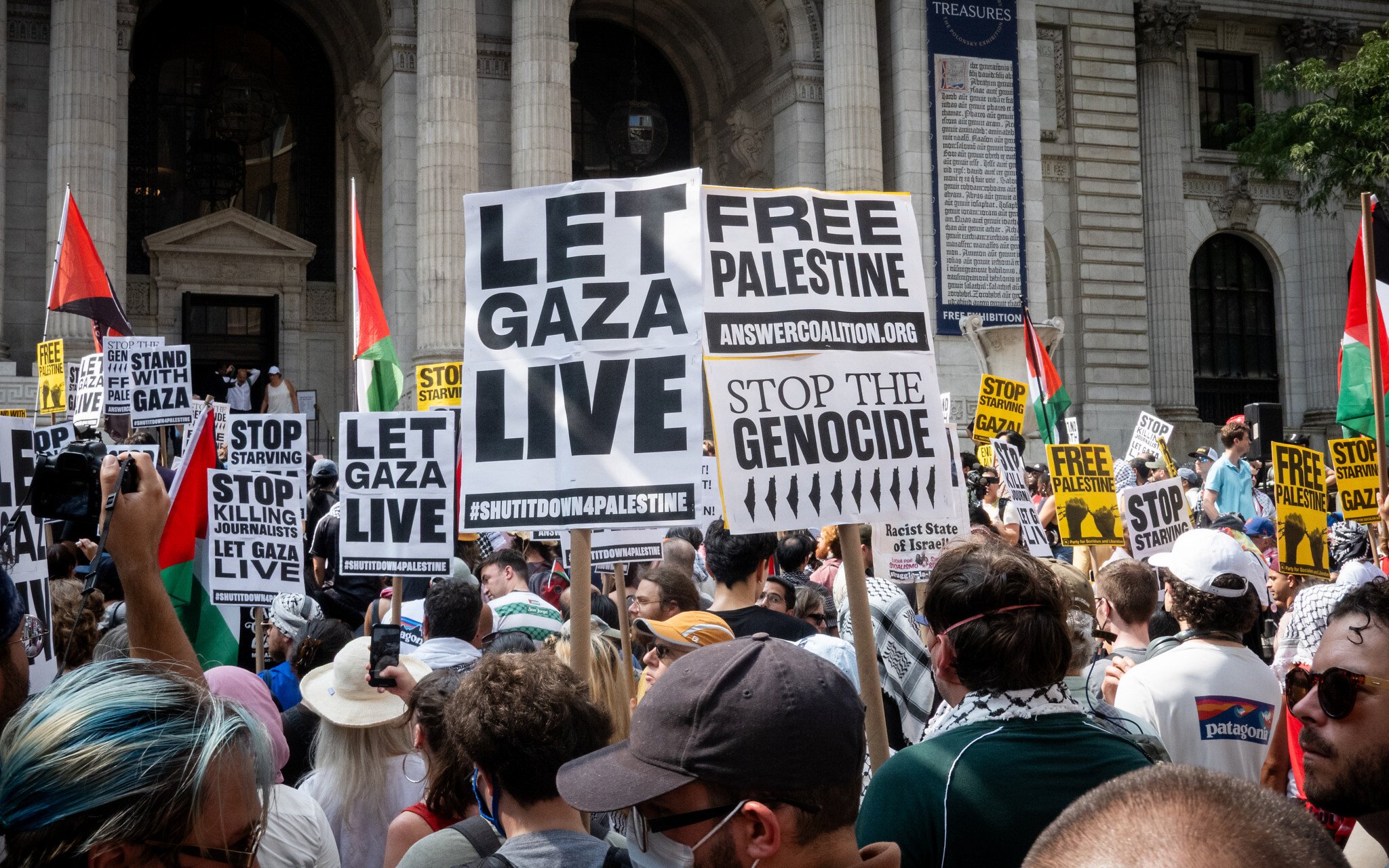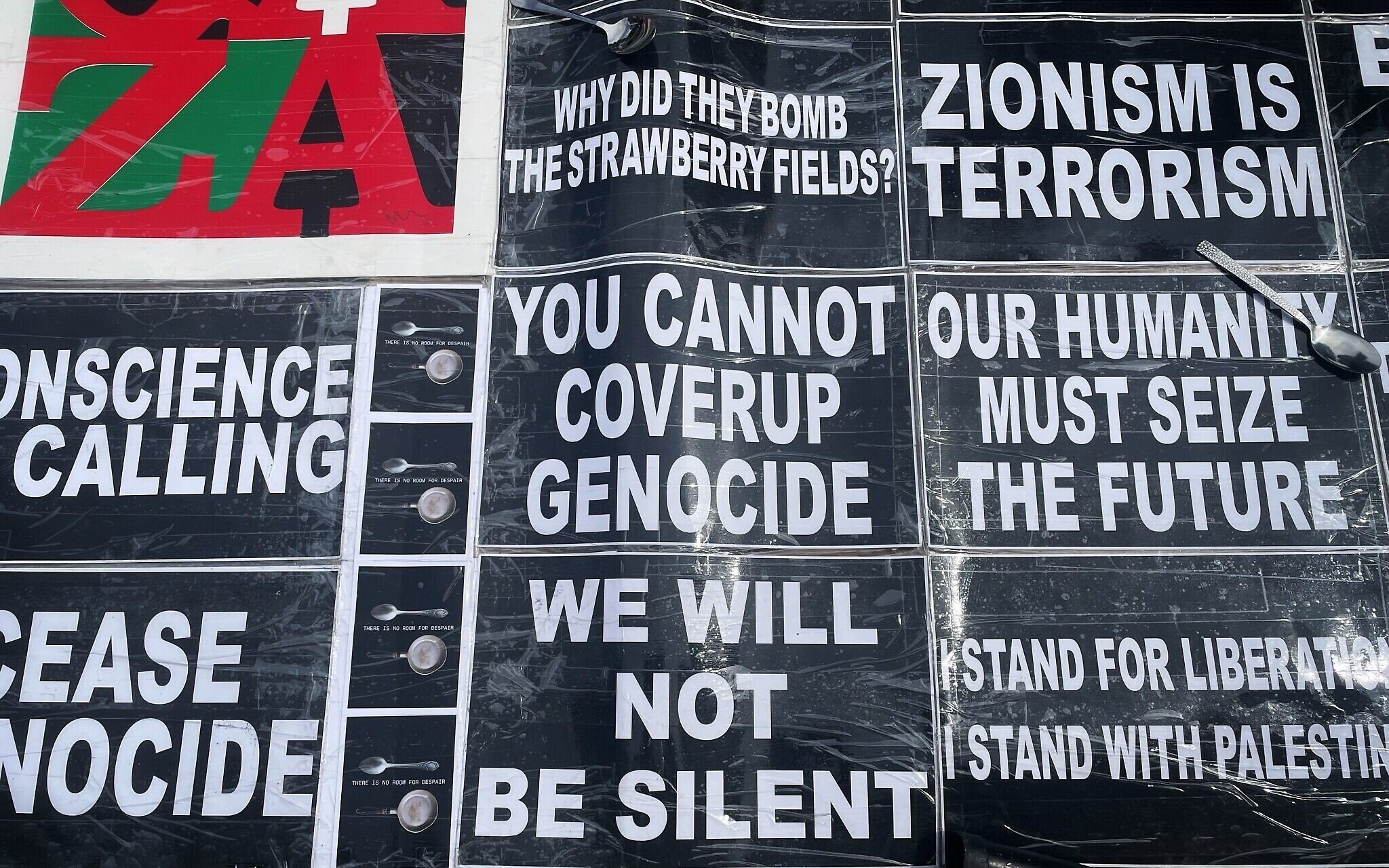


More than 170 professionals in the fields of genocide, international law, the Holocaust and antisemitism on Friday demanded that the International Association of Genocide Scholars (IAGS) rescind a resolution issued this week against Israel.
The IAGS said on Monday that Israel was guilty of genocide in Gaza, according to international law, in an announcement that garnered widespread media attention that portrayed the group as a leading cadre of authorities.
After passing the resolution, the IAGS drew criticism for its open-door policy for members, the association’s lack of transparency in passing the resolution, and for the resolution’s substance, such as its citations, omissions and legal interpretations.
On Friday, a separate group, calling itself Scholars for Truth About Genocide, released a statement highlighting all of those critiques. The statement has so far been signed by 178 individuals and institutions, more than the number of signatories on the IAGS resolution. The IAGS has around 500 members, 129 of whom voted, and 86% of those supported the resolution.
“Genocide is the gravest offense known to humankind; to dilute its legal standards for ideological ends is a form of moral violence. It dishonors the memory of past victims, misleads the public about present atrocities, and obstructs efforts to avert future ones,” the Friday statement said.
The statement included the signees’ names and positions, unlike the IAGS resolution, which did not include specifics about the vote, such as the signatories, or the names of those who drafted the resolution. The IAGS confirmed on Thursday that it welcomed non-experts into its ranks.
The Friday response to the IAGS criticized the group for a “quieting of dissent” ahead of the vote. Before passing the resolution, the IAGS leadership had said there would be a town hall for members to discuss the measure, but later backtracked, according to emails shared with The Times of Israel. There were no internal discussions about the resolution before the vote, despite requests from some members.
The statement said that Hamas was the only party in the conflict to legally meet the definition of genocide for its October 2023 invasion of Israel. The IAGS had blamed Israel for all deaths in Gaza, despite Hamas’s use of civilian infrastructure, effectively acting “as a means to excuse Hamas from having agency for its own actions,” the statement said.
“The IAGS never mentions that this war could end if Hamas were to release all of the hostages they continue to illegally hold in Gaza and lay down their weapons,” the statement said.
The experts also noted that the IAGS resolution said Israel had carried out “indiscriminate and deliberate attacks” on civilians, but that Hamas had made those sites legitimate targets under international law. The statement also disputed the casualty figures cited by the IAGS, which did not differentiate between civilians and combatants.
The IAGS also misrepresented an International Court of Justice statement that, the group said, found Israel had plausibly committed genocide. The head of the court at the time said that reading of the court’s ruling was incorrect, and that the court had not said Israel was plausibly committing genocide, the critics noted.
Additionally, the IAGS ignored established jurisprudence on genocide, the statement said. The International Court of Justice has said that, to be guilty of genocide, the pattern of a state’s actions must make clear that genocide was the state’s sole intent. If a state, like Israel, is acting in self-defense, it cannot be convicted of genocide.
“It is critical that we not water down the legal elements of genocide for the purpose of advancing ideological positions and bias,” the statement said. “Holocaust and genocide scholars can have legitimate concerns about Israeli conduct in Gaza without working to disparage the very legal standards that exist to protect people from these crimes.”
The critics demanded the IAGS “immediately rescind its resolution.”
“To persist in such distortion is to forsake the most elementary standards of law and scholarship. It reduces the Association to farce, erodes the integrity of genocide studies, and undermines the very meaning of the crime itself,” the statement said.
Signees included Eli Rosenbaum, a former war crimes prosecutor at the Department of Justice and the former head of its special investigations; Jeffrey Mausner, a former Nazi war crimes prosecutor with the Department of Justice; Benny Morris, a renowned Israeli historian; Alan Dershowitz, a prominent attorney; and Izabella Tabarovsky, a leading scholar of Soviet antisemitism.
Other critics have noted that the IAGS resolution cited activist groups that have reinterpreted the legal definition of genocide to charge Israel and a UN official with a history of antisemitism.
After the IAGS published the Gaza resolution on Monday, pro-Israel activists discovered that anyone could join the association for as little as $30. Some activists with expertise in the field joined, while others set up prank accounts, signing up as “Adolf Hitler,” Star Wars characters, or their pet dogs.
Critics said that open admission to the group undermined its claims to be a leading scholarly body, and media reports on the association’s Gaza resolution did not note its open-door policy.
The IAGS responded to the criticism in an internal message sent to members on Thursday.
The response, shared with The Times of Israel, highlighted the “broad interest” and “positive” media coverage generated by the Gaza genocide resolution, and reiterated that the resolution was published in accordance with the group’s bylaws and standard practices.
The statement condemned the “campaign to spam our membership” with fake names, and said that, in response, the association had temporarily blocked new members from joining.
The executive board also disabled the association’s public members directory, for the protection of members, the statement said, adding that the executive board has been harassed in emails and on social media.
The group doubled down on its open-door policy, saying the association is “designed to be open to all who are committed to working on issues pertaining to genocide,” including “artists, advocates, independent scholars, global majority scholars, marginalized communities, and survivors.”
“The goal is to include voices of those who may not have PhDs, official institutional affiliation, or the financial means to access ‘conventional education’ that often privileges Global North forms of expertise. It is intended to circumvent any ivory tower privilege,” the statement said.
The statement did not address the substantive criticism of the resolution or the lack of transparency surrounding the passing of the resolution.


